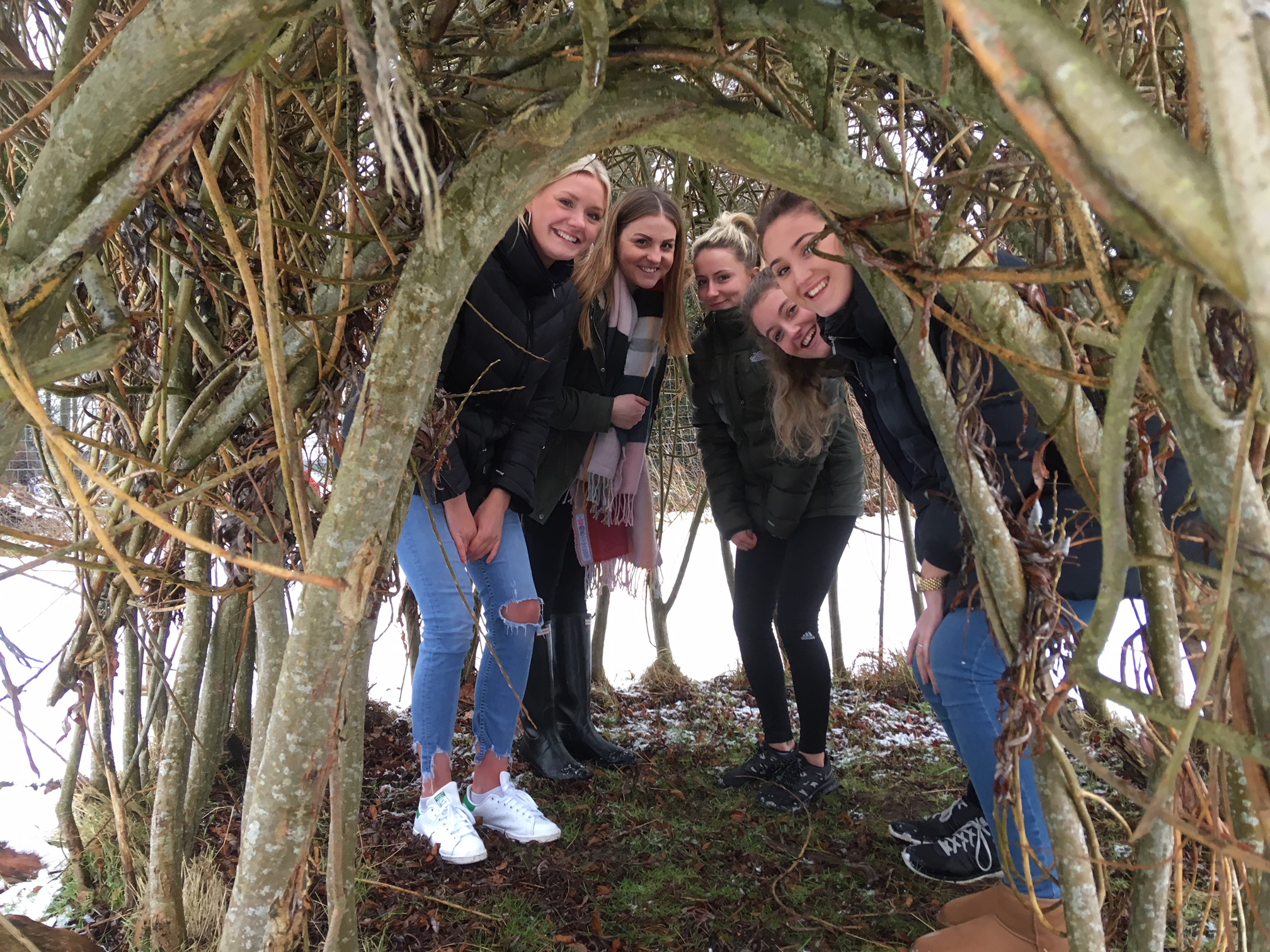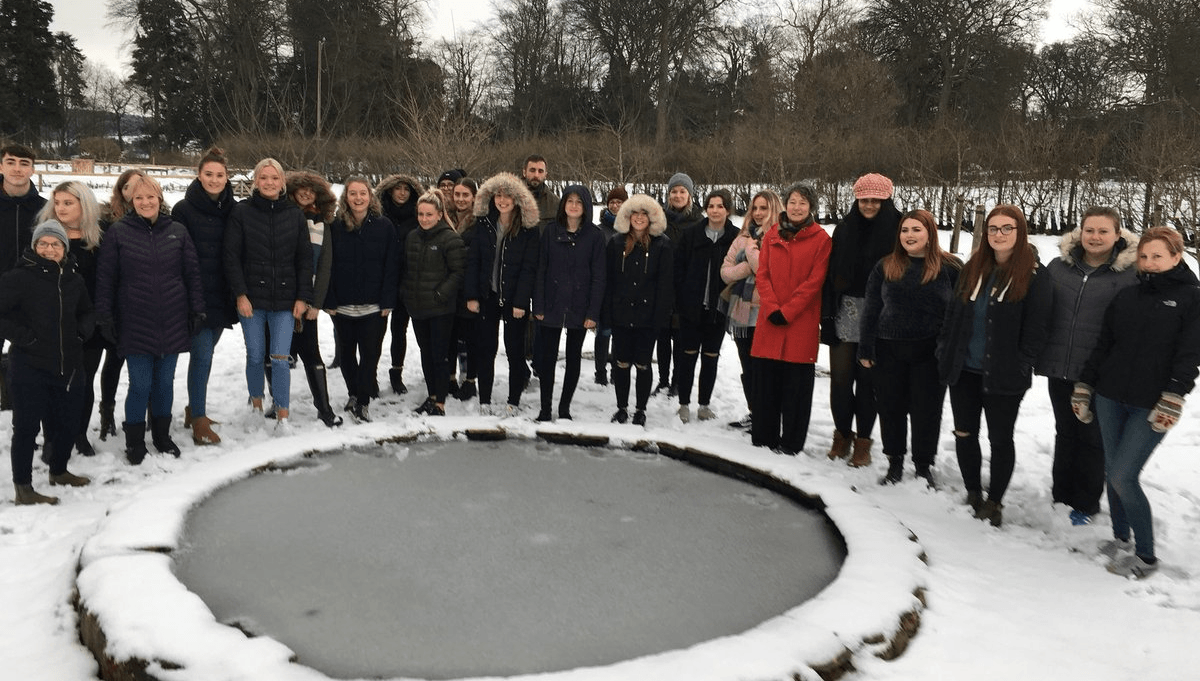Associate-Professor Ruth Lewis explores what happened at Sociology’s Embodied Learning Writing Retreat in Snowy Northumberland
Final year BSc Sociology and joint Honours Criminology and Sociology students met for a dissertation writing retreat in February. We chose to go to rural Northumberland to get away from the internet and mobile phones so we could focus on writing and critical thinking skills. We picked probably the snowiest day of the year but Northumberland proved to be beautiful and fortunately, Minister acres, a retreat centre provided a log-burning fire and constant supplies of hot drinks and cake to keep us going.
…wherever possible we get out and about, use our environment and build a discipline- community of staff and students. We look to connect the ‘brain’ stuff to the ‘body’ stuff. That is what the writing retreat was all about.
So what is embodied learning and what is a writing retreat? Northumbria University Sociology team have developed new ideas about teaching and learning – we are interested in how movement (in this case walking) and experiences (in this case being somewhere different and being together with colleagues to focus on a common set of tasks) aids critical thinking and focus and helps the memory. In a nutshell we know that doing a degree involves being in the lecture theatre and seminar room – but wherever possible we get out and about, use our environment and build a discipline-community of staff and students. We look to connect the ‘brain’ stuff to the ‘body’ stuff. That is what the writing retreat was all about.
We began with Katy Jenkins’s session on abstracts (the brains stuff – what are they for and how to write them – which was followed by a ‘walk and talk’ when students drafted their abstract. Walking in the beautiful surroundings of Ministeracres and speaking sentences out loud rather than writing them down, helped students articulate the core focus of their dissertations (it frees the mind – we know that as the Sociology team won an award to do research on this area). This is ‘embodied learning’ approach we take – sitting at a desk is not the only or the best way to learn. Once we’d had enough of the snowy walk in the Peace Garden and along the beautiful avenue of huge pine trees, students came back into the warmth and drafted their abstracts, achieving something that many of them had previously felt quite anxious about.

After lunch and lots of conversations about dissertation topics, when staff and other students were able to give advice and support tailored to each students’ topic, we focused on what a conclusion should look like. Emma Casey talked us through an exercise to help students draft their conclusion, even before they’ve written the rest of the dissertation. Again, this was a real weight off the minds for several students, who couldn’t imagine what they might say in a conclusion until they’d completed their analysis.
Once we’d had enough of the snowy walk in the Peace Garden and along the beautiful avenue of huge pine trees, students came back into the warmth and drafted their abstracts, achieving something that many of them had previously felt quite anxious about.
It was great to see students engage so enthusiastically in the retreat and to support each other to resolve challenges on their individual projects. Each dissertation project is unique and students are usually very proud of what they’ve achieved, once it’s all done and dusted. The advice and support given by staff was appreciated and valued, with one student saying: “Just wanted to say thank you for your help today. It was really helpful (and actually just really nice) to have a discussion with someone who is equally as interested in the same kind of thing… Has helped me think of a few different things to explore also.. so thanks!”
Ruth Lewis is Associate-Professor of Sociology in the Department of Social Sciences, Northumbria University.
